
The embattled Nigerian army has been joined by several vigilante groups that have been facing “heavy attacks” over the past months. (Photo: On Islam)
Cairo, 15 Rabi’ul Akhir 1436/5 February 2015 (MINA) – As Boko Haram insurgency continues to spread fear in Nigeria’s north-east, politicians expect elections might be marred with violence, raising fears among voters who brace to cast ballots later this month.
“Our vote will certainly be impacted,” Lai Mohammed, the opposition All Progressives Congress (APC) party spokesman, told The Independent, On Islam quoted by Mi’raj Islamic News Agency (MINA) as reporting.
“It is the responsibility of the government to ensure voter security but they’ve failed to achieve this.”
Mohammed warned that the latest terror attacks in the north-eastern regions, predominantly Muslim areas, would impact the voters who will be scared to go to polling stations.
Also Read: Pakistan Condemns Israeli Settler Attacks in West Bank, Al-Aqsa Storming
Earlier this week, Nigerian troops foiled Boko Haram attempts to seize the northern city of Maiduguri that is expected to vote for the APC.
A few days later, a female suicide bomber blew herself up in the north-eastern city of Gombe, killing one person and injuring 18 others.
Amid escalating violence, advisors of the incumbent president Goodluck Jonathan insist that the latest attacks wouldn’t “harm” his chance.
“We’re doing all we can to fight this insurgency and ensure voter security,” Doyin Okupe, senior adviser to Jonathan, said.
Also Read: China Criticizes US-Drafted UN Gaza Resolution as Vague, Abstains from Vote
“This is the largest deployment of troops in Nigerian history and the elections will go ahead.”
Calls to postpone the elections that will coincide with the Valentine’s Day were dismissed by both candidates, the former military ruler Muhammadu Buhari and Jonathan.
Anticipating a sweeping victory in the upcoming elections, the APC spokesman said: “The whole country is ready for change and a leader with the moral authority to fight Boko Haram; only Buhari can win this war.”
The Nigerian general election of 2015 will be the 5th quadrennial election to be held since the end of military rule in 1999.
Also Read: Former Bangladesh PM Sheikh Hasina Sentenced to Death
It will be held on Saturday, 14 February 2015. Voters will elect the President and Members to the House of Representatives and the Senate.
Worries
The APC fears that the violence would impact the vote were echoed by the voters in the northern regions.
Yet, many of them said they will defy their fears and go to polls.
Also Read: Pakistan Declares State of War After Car Bomb Incident
“I’m scared to vote, it’s true, but it’s not in our nature to give in to terror and we must remember that democracy must be fought for,” Ibrahim Bakare, one of many who will travel back to the north-east to vote, said.
On the other hand, PDP supports claim that re-electing Jonathan for a third term would end insurgency in the West African country.
“We will beat Boko Haram in the next four years; we don’t want change,” said one PDP supporter.
The embattled Nigerian army has been joined by several vigilante groups that have been facing “heavy attacks” over the past months.
Also Read: Jakarta Hosts Gala Dinner for World Peace Forum Delegates
“We were fighting for five hours yesterday and we’re expecting more attacks today,” a spokesman for the Vigilante Group of Nigeria, Abbas Gava, said.
“There’s unity between us and the military to fight the insurgents. Together we will provide security for the elections.”
Many fear that same results as in 2011 elections would provoke more violence in the restive country.
With almost 59% of the vote against 32%, Jonathan defeated Buhari in 2011 elections.
Also Read: Indonesian Minister Urges Synergy Between Wasathiyah Islam and Chinese Wisdom
More than 800 people were killed and 65,000 displaced in three days of violence in the north after Jonathan’s win three years ago.
“General Buhari speaks for peace but how can he control every single individual?” the APC’s Mohammed said.
“The APC chairman is a Christian and the APC is not a Muslim party. We speak for the whole of Nigeria.”
Ahead of elections, Nigerian Muslim leaders have reiterated calls for unity and peace during the election race, amid escalating threats from Boko-Haram militants.
Also Read: New Delhi Covered in Toxic Smog: Residents Say ‘We Can Hardly Breathe’
Last month, Boko Haram militants killed dozens about 2,000 people and burned down homes in the northeast Nigerian town of Baga, according to Amnesty International. (T/P011/P3)
Mi’raj Islamic News Agency (MINA)
Also Read: Boat Carrying 100 Rohingya Migrants Capsizes in Malaysian Waters





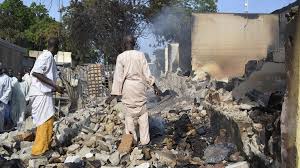

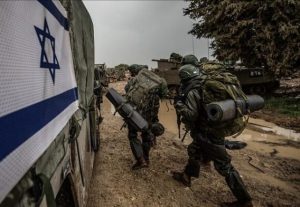



![Israeli tanks and APC’s gather by the Israeli – Lebanese border. Amid Israel’s escalating campaign against Hezbollah in Lebanon on September 30, 2024. [Erik Marmor/Getty Images]](https://en.minanews.net/wp-content/uploads/2024/10/IMG_20241001_203226-300x197.jpg)



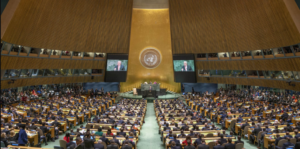
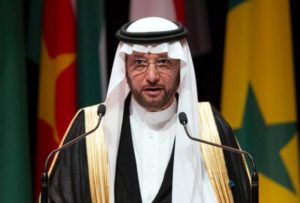
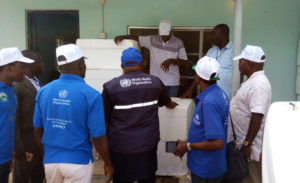
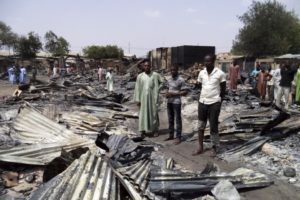
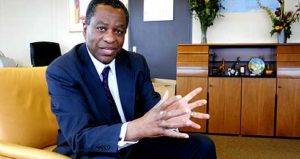
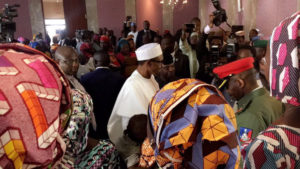










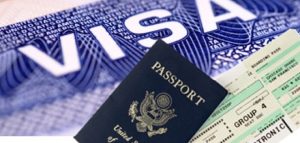




 Mina Indonesia
Mina Indonesia Mina Arabic
Mina Arabic